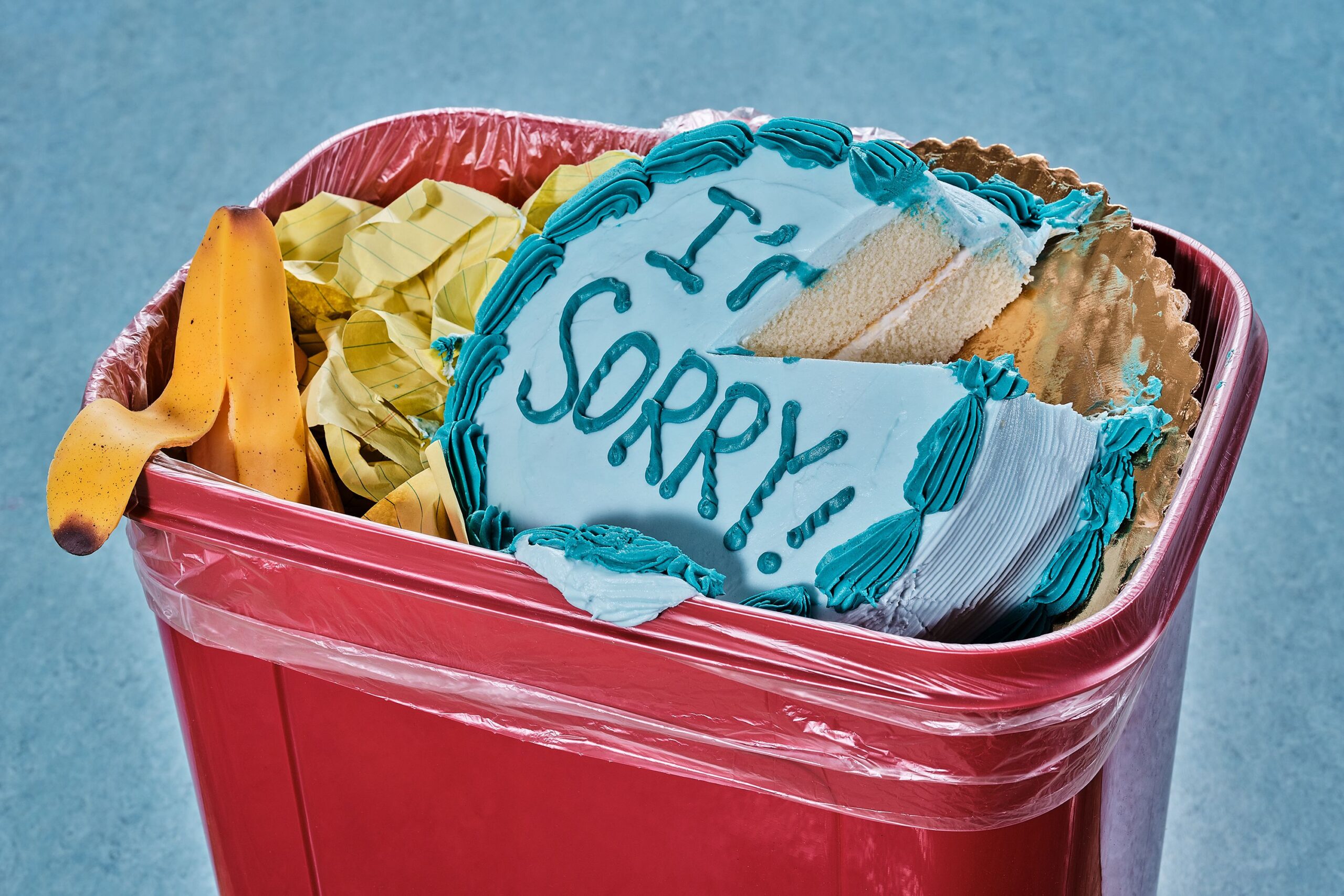“Sorry, I’m just now seeing your email!” (You sent it 15 minutes ago.)
“Sorry that you completely misinterpreted that thing I said”.
“Sorry you just rammed into me with your grocery-store cart”.
“Sorry” is running amok in conversations and communications. We drop it indiscriminately for all manner of things we really shouldn’t be sorry for—and diluting the apologies that truly matter. Is it time to stop? Could we even cut back if we wanted to?
“I wasn’t really that sorry,” admits Louise Julig, a freelance writer in Encinitas, Calif., who found she was constantly apologizing for the “delay” when replying to notes, even when there wasn’t much of a delay at all. “Why am I saying this thing? I don’t know.”
“Sorry” has lost its meaning, she realized, no longer a heartfelt declaration of remorse but a knee-jerk response. Now, faced with the blinking cursor of a blank email, Ms. Julig asks herself, did I legitimately miss something, or mess someone else up? If the answer is no, she’s not sorry.
“Don’t give away your power,” counsels Jeffrey Pfeffer, a professor of organizational behaviour at Stanford Graduate School of Business and author of a book about commanding authority at work. Apologizing in business, especially when you’ve actually done something wrong, is just asking for trouble, he says.
People are never satisfied with an apology, he adds. Grovelling and exhibiting vulnerability only make you look weak and sink team morale.
Standing your ground comes with risks, he allows. You’ll piss some people off. You might not be liked. He thinks it’s worth it.
“You can either conform to what people want you to be, or you can decide that you are going to risk offending people,” he says. “Life is about trade-offs.”
When I searched my sent emails for the phrase, “Sorry for the delay,” the result was too many hits for Gmail to give me an exact count.
I tried, in the course of reporting this column, to cut back on my apologies. Mostly I failed, catching myself exclaiming sorry! when dialling in three minutes late for a call. A person I contacted for this piece apologized for only being available one of the days I suggested we chat, not the other. I flashed back to a clip of Taylor Swift, in which she apologizes for “getting on her soapbox” about misogyny, then quickly catches herself.
“We’re, like, ‘Sorry, was I loud?’” the pop star says in “Miss Americana,” the Netflix documentary. “In my own house that I bought. With the songs that I wrote. About my own life.”
Words have consequences.
“Always feeling like you need to say ‘sorry’ makes you kind of feel like crap,” says Jen Fisher, the chief well-being officer for Deloitte. Last year, she logged her own apologies, flagging the ones that felt unnecessary and replacing them with expressions of gratitude.
Have to move a meeting? Try, “I appreciate your flexibility,” or “I’m grateful for your understanding,” she says. Remember that it’s not your responsibility to apologize for things out of your control, such as the weather or a client moving a deadline. Putting “sorry” on loop waters down the moments when you really do need to show remorse, she adds.

And of course, people often wield “sorry” to mean exactly the opposite, more a passive-aggressive insult than real contrition.
Shedding “sorry” can be empowering. Hannah Szabo grew up in Wisconsin, where—as in much of the Midwest, Canada and other regions—“sorry” sometimes serves as a conversation starter. She would drop one in during a pause in a conversation, or when she felt uncomfortable.
Then she moved to Brazil. She was shocked to find that the students she was teaching barely apologized. At first, she was offended. Now, she basks in a culture without reflexive apologies.
Back in the Midwest on a recent trip, she almost grew angry when her mother apologized for accidentally sticking her seat belt in the wrong buckle.
“That does not qualify for a sorry, Mom,” she told her. “Take that back.”
Women apologize more than men, but a female co-worker’s apology doesn’t necessarily mean she’s claiming blame, says Deborah Tannen, a linguistics professor at Georgetown University. She might just be trying to get her work done with a dose of graciousness, for example smoothing over a misunderstanding with, “Sorry, what I meant was…”
“Everything we’re doing is on some level trying to show we’re a good person at the same time that we’re trying to accomplish something,” Dr. Tannen says.
When I message “So sorry to bug you…” to my boss before asking a question that’s a necessary part of both our jobs, I’m showing respect for power differentials at the office, Dr. Tannen notes.
Still, some misinterpret women’s apologies as incompetence. When British leader Liz Truss last week apologized “for the mistakes” in pushing a risky tax plan, it was met with calls to resign. A few days later, she did.
Be aware of how others respond when you use words of contrition, Dr. Tannen cautions. If colleagues call out your apologizing, you might explain that you were just saying you were sorry a thing happened, and not sorry sorry. If you hear that feedback often, consider an audit like Ms. Fisher’s.
Kingston Vickers tried. After moving to Texas years ago, the native Canadian resolved to remove the “ehs” and “sorrys” from his vocabulary. Doing so consumed so much mental effort that he grew flustered when talking and wasn’t as effective at his sales job.
Now he embraces his proclivity for apologies, and says his work has benefited. Apologizing for his clients’ struggles or when he’s about to make an ask of them, builds trust, he says. It’s also a way of showing empathy.
“People underestimate the power of a kind word nowadays,” he adds.
Source: The Wall Street Journal

